Mike Storm, originating from the Netherlands, can be best described as an artist whose music is intrinsically cerebral, hypnotic, and possesses profound psychological depth. His unique sound serves as a portal to cosmic exploration, effortlessly fusing elements of sci-fi with captivating techno beats.
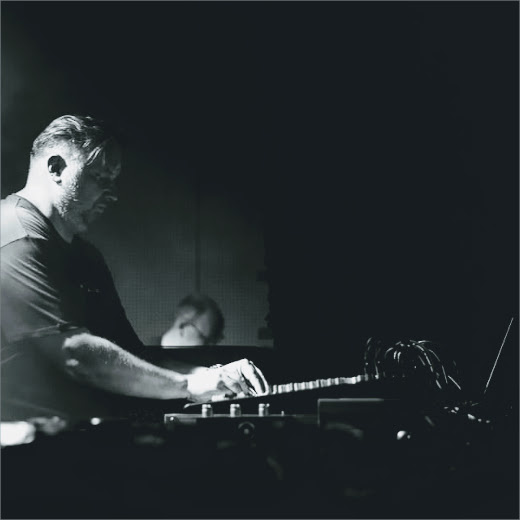
A cosmic realm of infinite expansion
Mike Storm, originating from the Netherlands, can be best described as an artist whose music is intrinsically cerebral, hypnotic, and possesses profound psychological depth. His unique sound serves as a portal to cosmic exploration, effortlessly fusing elements of sci-fi with captivating techno beats. My first encounter with his music introduced me to a style of techno I never knew existed. It was the 2020 release on the Warm Up Recordings roster where the Designation EP, the Invite’s Choice Podcast #278. In addition, his album Indigenous Lifeforms, released on Jeff Mills’ Axis label to this day, still has me enthralled. I have experienced the immersion of getting lost in the trans-inducing pulsating beats and atmospheric textures that elicit the feeling of euphoria and escapism.
I can appreciate the depth involved in his craft, which is in stark contrast to the superficial, commercially driven traditional techno music. He has pushed the boundaries of traditional techno and is a testament to its transformative power, proving his matchless expertise in human creativity. The discovery of solid techno through the music of Mike Storm is an experience where one can escape to a cosmic realm of infinite expansion, creating a deeply satisfying cerebral experience.
Mike Storm’s discography includes releases on highly respected labels such as Affekt, Axis, Subsist, Voyager, Ben Sims, Belief System, Symbolism, Orbis, Microfreak, Ketra, Suburban Avenue, Ars Mechanica, Modularz, N&N, Spectral Rebel and Warm Up Recordings.
Regarding his gear, the Roland TR909 and the Waldorf Microwave XT are important to him. Notably, at the age of 14, he began experimenting with samples using a tracker program on an Atari 1040STE. Following this, he delved into DJing and subsequently acquired a drum machine, specifically the Jomox XBase 09, to incorporate into his DJ sets. Soon after, he purchased a Yamaha SU700 sampler, which he used to create his initial compositions in conjunction with the drum machine. As his interest in production grew, he transitioned away from DJing and acquired another Yamaha SU700 sampler, allowing him to craft his first live sets. This marked the beginning of his journey into performing his own tracks live. He holds a viewpoint regarding the use of his machines, finding that both their capabilities and limitations serve as sources of creativity. While they do help in achieving his goals, that is not his means or substitute for original creativity and ideas. Ultimately, his creative process stems from his imagination.
Despite the underground scene’s heavy reliance on techno and electro, Mike learned techniques for working with analog gear from expert DJs and producers. He continues to create his music without the use of a sequencer. These are machine-made raw recordings; there are no alterations or total recall.
Ironically, Carl Sagan, an author and astronomer, wrote a book slightly similar to Mike Storm’s most recent album, The Pale Blue Dot, which is on the Voyager Recordings label. In this book, Pale Blue Dot, Sagan delves into his philosophical reflections on humanity’s minuscule existence amidst the immense vastness of the cosmos. It is fittingly apparent that there is a connection to be made here. Storm’s music has the power to stimulate contemplation on the significance of the vastness of space and perspective of human existence.
The Pale Blue Dot album can be likened to a profound cosmic experience. To review a couple of tracks, “A Lullaby For Sol, Nostalgia Of Home” is a track that transports listeners to distant orbits beyond the confines of reality through the use of science fiction elements woven into entrancing beats. “Echoes of Solitude, Voices From The Abyss” makes it apparent that at the core of these beats lies a hypnotic groove, attracting listeners into its gravitational pull with commanding energy. The mind then becomes deeply absorbed in this track, allowing for a profound sense of immersion and introspection. Overall, this album is intensely deep. It is no wonder he is often categorized as the creator of “advanced techno.” He expertly creates a sense of spatial dimensionality that transports listeners to otherworldly realms.

Anne Jackson / Igloo :: Reflecting on your formative (younger) years, what artists or genres resonated with you? Could you also share your age range during that time?
Mike Storm :: During my formative years, my musical development was strongly influenced by electronic music and the evolution of techno, particularly in my hometown of Alkmaar, which had a vibrant electro scene. These artists introduced me to a world of drum machines and synthesizers with synthetic sounds and repetitive rhythms that sparked my imagination and awakened my interest in the possibilities of electronic music. Throughout this period, I was immersed in a cultural melting pot of sounds and ideas, exposed to a wide range of music genres and subcultures by the owner of our local record shop. This diversity of influences shaped my musical and creative approach.
Your music is often described as “sci-fi advanced techno.” What inspired you to incorporate sci-fi themes into your music, and how do you define “advanced” techno?
Mike :: My fascination with science fiction and futuristic concepts stems from my love for imagination and exploring unknown territories. I integrate sci-fi themes into my music to convey a sense of futurism and technological advancement. For me, advanced techno entails using cutting-edge sound technologies and production methods to create a sonic landscape that is both innovative and immersive. My fascination with science fiction and futuristic concepts is deeply rooted in my love for imagination and exploring unknown territories. The idea of the unknown, of what could be beyond our current reality, has always intrigued me and has had a significant influence on my artistic vision. Integrating sci-fi themes into my music is a way for me to convey a sense of futurism and technological advancement. Through sounds, textures, and atmospheres, I try to create a sonic landscape that transports the listener to unknown worlds and future scenarios where the concept story can be traced.
“I was immersed in a cultural melting pot of sounds and ideas, exposed to a wide range of music genres and subcultures by the owner of our local record shop. This diversity of influences shaped my musical and creative approach.” ~Mike Storm
Your live shows are sought after. How do you prepare for a live set, and what do you aim to achieve with your shows?
Mike :: For my live sets, I devote a lot of time to careful planning and preparation. This includes selecting sounds and tracks that fit the atmosphere I want to create, fine-tuning my equipment, and practicing transitions and improvisations. I aim to provide an immersive experience where the audience is taken on a journey through my musical world.
My goal with my shows is to establish a deep connection with the audience and offer an unforgettable experience. I strive to create a unique atmosphere where people can lose themselves in the music and feel connected to each other and the sounds around them. I aim to evoke emotions, convey energy, and leave a lasting impression that stays with people after the performance. Each performance is an opportunity for me to bring my artistic vision to life and share my passion for music with the audience.
Do you listen to other genres besides electronic music? If not electronic, who are the artists you listen to?
Mike :: In addition to electronic music, I also listen to a wide range of other genres, including classical and experimental music. Steve Reich’s influence on my musical development is undeniable. His pioneering work in minimal music and repetitive structures has enriched my understanding of rhythm and texture on a fundamental level. Through his compositions, I have come to understand how repetition and subtle variations can lead to hypnotic and immersive sound experiences. Reich’s ability to evoke complex and profound emotions with seemingly simple means has profoundly changed my view of music as an art form. It has encouraged me to experiment with repetitive patterns and structured compositions in my own work, striving to find a balance between minimalist aesthetics and emotional depth.
Additionally, Jeff Mills has had a significant impact on my musical development. His groundbreaking work in the techno scene has inspired me. Mill’s ability to explore futuristic and cosmic themes in his music has encouraged me to think beyond the traditional boundaries of techno and strive for a unique and innovative approach. His use of rhythmic complexity and sonic experiments has ignited my musical imagination and spurred me to continue searching for new ways to express my artistic vision. Through the influence of both Steve Reich and Jeff Mills, I have been able to develop an artistic identity, drawing from a wide range of influences and inspirations. My music reflects my pursuit of a balance between experimentation and emotion, minimalism, and depth.
Could you please name techno artists that you admire and are similar to the style of techno you create?
Mike :: I have great admiration for techno pioneers such as Jeff Mills, Oscar Mulero, Speedy J, and Surgeon, all of whom have made an undeniable mark on the global techno scene and continue to innovate with their sound. But there are plenty of other emerging artists whom I admire. I believe that anyone who makes music does so with passion and dedication, and I always find it admirable how artists express themselves in their own way, whether you love it or not.
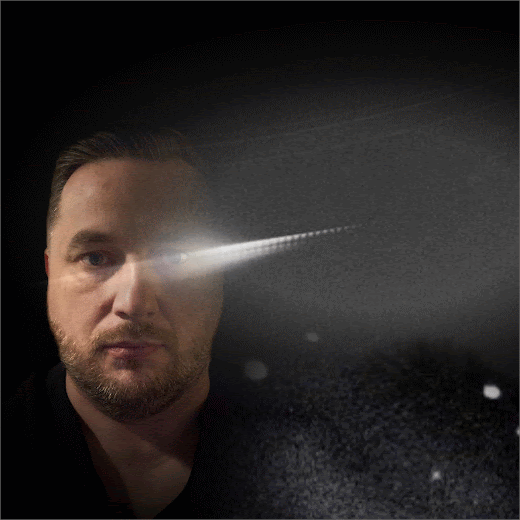
Can you discuss the emotions or narratives you aim to convey through your music?
Mike :: My approach to creating music goes beyond just making sounds that get people moving on the dance floor. I see my emotions and experiences. Every track I create is akin to a brief narrative, encapsulating a moment of emotion through audio. Sometimes, I draw inspiration from personal experiences, such as moments of joy, sadness, or wonder, and try to translate those feelings into music that can resonate with others in a similar way. Other times, I am guided by broader themes, such as the search for meaning and connection in a world full of chaos and change.
Music is an expression of the human condition, with all its complexity and contradictions. It can reflect the inner struggle between hope and despair, between light and darkness. Through sound and rhythm, I try to embrace and reconcile those contradictions, creating a space where people can lose themselves and rediscover themselves. I spend a lot of time refining my sounds and arrangements so that they are not only effective on the dance floor but also have a deeper meaning for the listener. seeking the perfect balance between tension and relaxation, complexity and simplicity.
“Through sounds, textures, and atmospheres, I try to create a sonic landscape that transports the listener to unknown worlds and future scenarios where the concept story can be traced.” ~Mike Storm
Can you share with us the experience of signing with Jeff Mills on the Axis label? How did this experience influence you? Is there a story to tell?
Mike :: Signing with a record label is always a sign of appreciation for your work. It can be an important step in an artist’s career. During the pandemic, Jeff Mills asked if I wanted to make music for The Escape Velocity project, which eventually became 7 albums that you can find in the Axis Shop. It not only gives recognition to my work but also provides new opportunities within the industry. When I think about it now and look at which labels I’ve released on Ben Sims, Symbolism/DVS1, Mistress/Oscar Mulero, Warm Up/Steve
Bicknell, 6Dimensions/Developer, Modularz, and all other labels — it’s an experience that has helped me reach as an artist. Not to mention the two labels, Belief System and Voyagers Recordings that have given me the opportunity to release a vinyl album on both.
What advice would you give to “up and coming” artists who aim to follow in the footsteps you have paved?
Mike :: For upcoming artists, it is important to stay true to yourself and cultivate your sound. Keep learning and growing as an artist, and don’t be afraid to challenge yourself and explore new territories, even if it means stepping outside your comfort zone. Ultimately, you know where you want to go, and everything will come as a natural process. People will always judge you based on what you create, but if you can let that go, you create no limitations for yourself.
Could you provide insight into any future projects, shows and/or thoughts you’d like to share with your followers?
Mike :: Currently, I am working on a new album and new releases. I would like to perform more frequently with my live set, which I actually do too little of. Additionally, I’ve been expanding my studio setup, dedicating a lot of time to it. Moreover, I’ve been contemplating starting my own label where I can release my own work, considering I produce so much music that I don’t always release under other labels.
The Pale Blue Dot is available on Voyager. [Bandcamp]







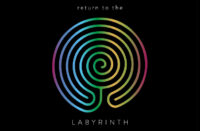


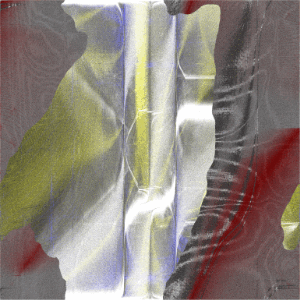
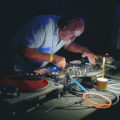
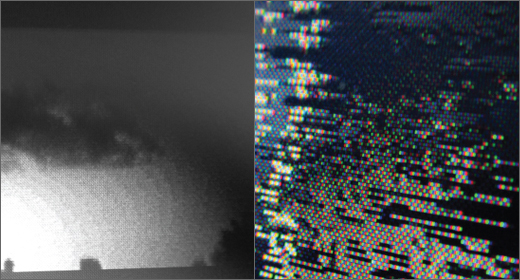




![Pole :: Tempus Remixes (Mute) — [concise]](https://igloomag.com/wp/wp-content/uploads/2025/04/pole-tempus-remixes_feat-75x75.jpg)






![Hasbeen :: Bunker Symphonies II (Clean Error) — [concise]](https://igloomag.com/wp/wp-content/uploads/2025/04/hasbeen-bunker-symphonies-ii_feat-75x75.jpg)
